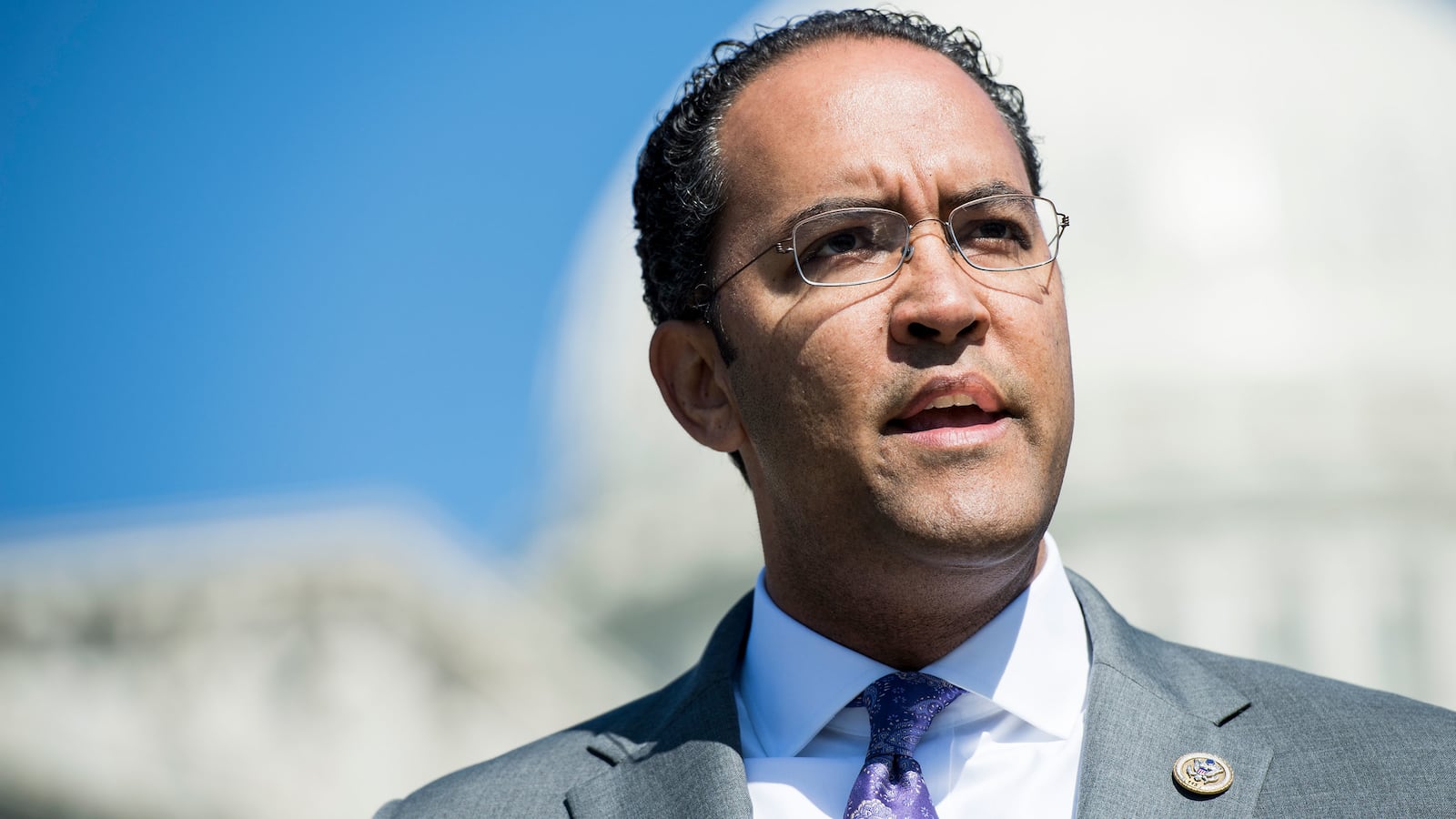The political virus that is Donald Trump claimed yet another victim when Will Hurd, 41, announced his retirement from the House. It was one more sad, if predictable, pit stop on the road to the inevitable Trumpification of the GOP.
From where I’m standing, I see three interrelated components: resistance, race, and regional reordering.
Let’s start with resistance. It is futile.
One year ago, Hurd, a cybersecurity expert and former CIA officer, wrote a column for The New York Times in which he criticized Trump for “playing into Vladimir Putin’s hands.”
Hurd went on to say, “Over the course of my career as an undercover officer in the C.I.A., I saw Russian intelligence manipulate many people. I never thought I would see the day when an American president would be one of them.”
He also criticized the need for a wall “from sea to shining sea,” and he was one of a handful of Republicans who voted to block Trump’s bogus declaration of an “emergency” order to fund it. Most recently, he voted for a resolution condemning Trump’s racist remarks.
For obvious reasons, this aggression will not stand, man.
Just as any religion must be more worried about heresy than disbelief, Trump’s cult-like takeover of the GOP cares more about purging the heretics than it does baptizing true believers.
It is, perhaps, ironic that a famous economist―one whom conservatives (as recently as the Tea Party movement) once admired―can best explain why Hurd’s retirement is symbolic of a toxic system. Friedrich Hayek’s most famous book, The Road to Serfdom, includes a chapter about “Why The Worst Get on Top.” Hayek was specifically discussing why this inevitably happens in totalitarian regimes (for example, how did Stalin, of all people, manage to succeed Lenin?), but it is a hallmark of many dysfunctional organizations where the most “ruthless and unscrupulous” are promoted.
The corollary to the notion that the “worst get on top” is that the best bug out.
That is precisely what is happening with the exodus of Hurd, coupled with the defection of Justin Amash, the 2018 defeat of center-right female GOP candidates (like Barbara Comstock and Mia Love), and the spate of retirements that have been announced in recent weeks.
We are, at least, blessed that our purges are fairly benign. We are fortunate to live in a country where, instead of being sent to Siberia, you are merely sent to Janesville, Wisconsin, or somewhere called “the private sector.” Still, there is banishment for those who refuse to bend the knee.
Call it a “brain drain” if that’s more palatable. What we actually have is enforced adverse selection―a culture that rewards conformity and mediocrity (by virtue of promoting people who demonstrate these qualities) and punishes independent thinking, diversity, and leadership qualities.
If this scenario sounds familiar, it is because we see it at work in our corporate culture. The difference here is that members of Congress are not supposed to be “employees” of the president but of the people who elected them.
Race, of course, is another very big part of this story. Hurd is the only black Republican in the House, and—save for Sen. Tim Scott—the only one in Congress. Republicans have long had a hard time attracting minorities, but the Trump-era has thinned the ranks of black Republicans in Congress to the bone—literally, to Scott. In fact, Trump celebrated the defeat of black Republican Mia Love by saying, “Mia Love gave me no love.”
The only type of Republican who can win Hurd’s district (which stretches from San Antonio to El Paso) would likely be a Hispanic who is allowed to criticize Trump. And since the latter is untenable, the GOP can wave goodbye to Texas-23.
Which brings us to our final “R”: region. Trump’s electoral strategy involves doing whatever it takes to win the Electoral College, which (for now) involves turning out more and more working-class whites in states like Pennsylvania, Wisconsin, and Michigan.
But every action has an equal and opposite reaction. The danger is that, in wooing these Rust Belt voters, Republicans risk alienating states like Texas. Polling continues to show Trump struggling to win the Lone Star state. Hurd’s exodus will very likely flip his seat blue, further demonstrating this trend and probably juicing Democratic turnout in his district.
None of this should be happening. In a sane world, Hurd would be a rising star in the Republican Party. He is thoughtful and smart. He is young, yet highly qualified and experienced. He is a principled conservative who also can appeal to a diverse country. And now, he is gone.
A party that alienates their Will Hurds—instead of embracing them—is a party in deep trouble. Thanks, Trump.







